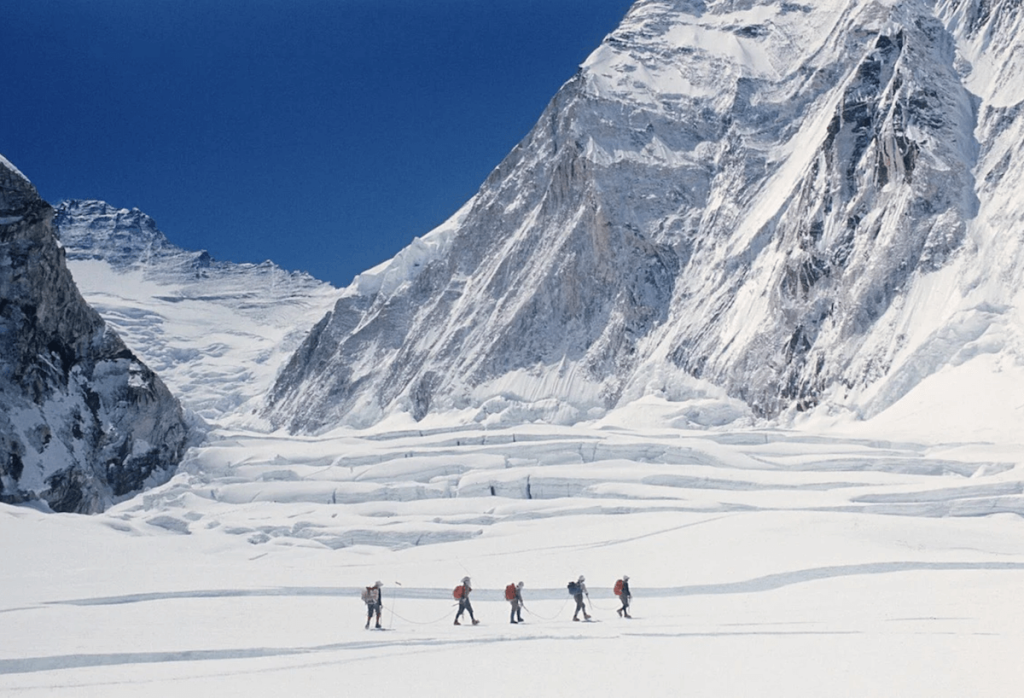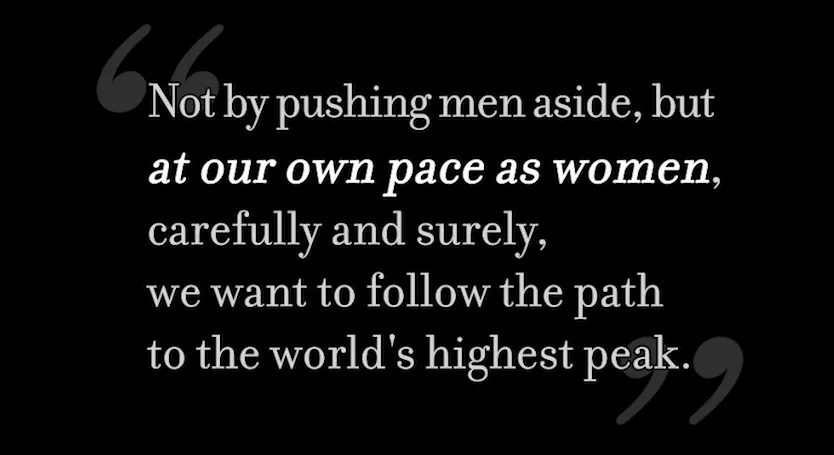
A documentary about the 1975 Japanese Women’s Everest Expedition,
which led to Junko Tabei becoming the first woman to summit Everest.
On May 16, 1975, Junko Tabei became the first woman to summit Mount Everest (8,848 meters / 29,029 feet), marking a historic milestone in mountaineering. As part of the pioneering Japanese Women’s Everest Expedition — a team of 15 women from diverse backgrounds — Tabei’s achievement challenged the widespread belief that “women can’t climb Everest.” Facing social prejudice, fundraising hurdles, and unforeseen setbacks, the team’s unity, grit, and determination turned the impossible into reality. At the time, only eight expeditions worldwide had ever reached the summit. The film features exclusive interviews with the late Junko Tabei, intimate reflections from surviving teammates and sherpas, expert commentary, and rare archival footage-professionally shot during the expedition, capturing their journey up to 8,500 meters. It honors the collective spirit and unwavering dedication of the women who made history-together.
Runtime: 1 hour 9 minutes
Directed by: Shinako Sudo
Exclusive Interviews: Junko Tabei, Lhakpa Tenzing, Elizabeth Hawley, Tadao Kanzaki, Sachiko Naka-Araki, Reiko Shioura-Nishibori, Yumi Taneya, Setsuko Kitamura, Yoshinobu Emoto, Passang Norbu and Masanobu Tabei
Archive footage courtesy of Nippon TV
世界最高峰に挑んだ、15人の日本人女性たち。
1975年5月16日、田部井淳子さんが女性として世界で初めてエベレスト登頂に成功しました。
彼女は、専業主婦や教師、電子技術者など、さまざまなバックグラウンドを持つ15人の女性で構成された「エベレスト日本女子登山隊」——Japanese Women’s Everest Expedition(JWEE)の一員でした。
本作は、1975年当時の登山隊に密着取材した貴重なフィルム映像に加え、2014年〜2015年に撮影された田部井淳子さんをはじめとする元隊員、登頂を支えた現地の登山ガイド、そして専門家へのインタビューを織り交ぜた記録映画です。日本が世界で活躍する女性登山家を生み出した背景も紹介、美しい日本の自然もフィーチャーしています。
「女性には無理」と言われていた時代に、社会の偏見や資金難、予期せぬアクシデントを乗り越え、前人未到の高みに挑んだクライマーたち。その勇気、団結、不屈の精神が、今、映像と証言によってよみがえります。


